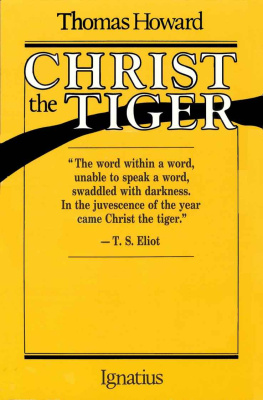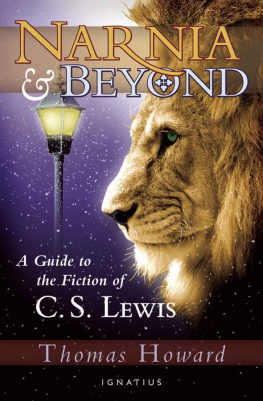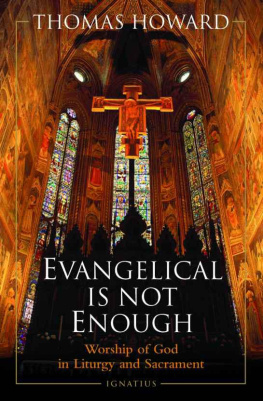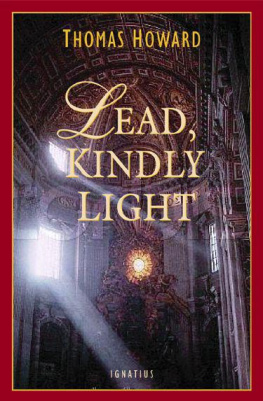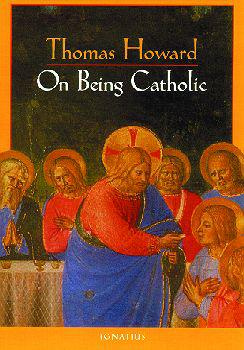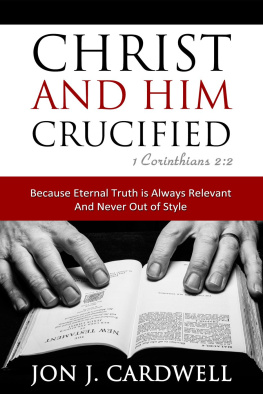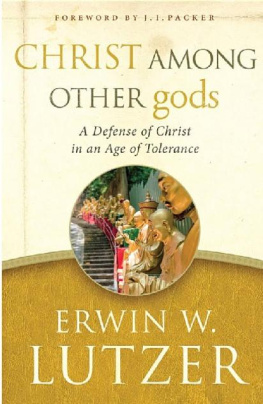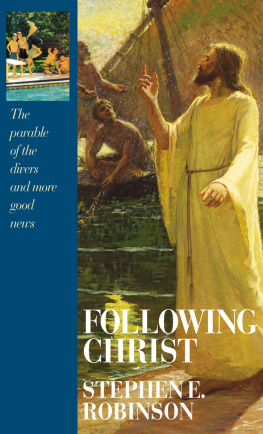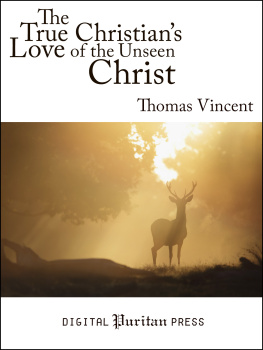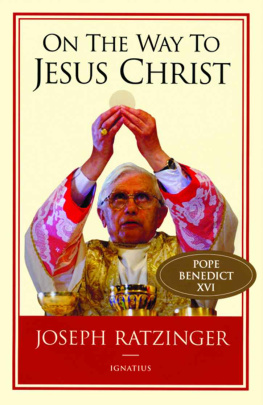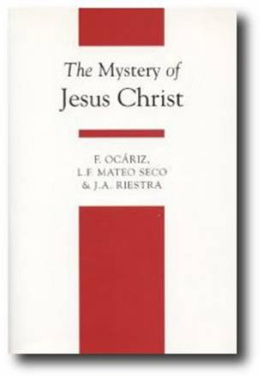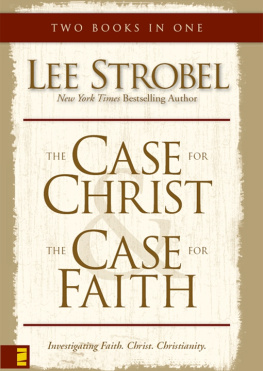Christ the Tiger
THOMAS HOWARD
Christ the Tiger
A Postscript to Dogma
IGNATIUS PRESS SAN FRANCISCO
First edition printed in Great Britain
Hodder & Stoughton
1967 Thomas Howard
Cover by Riz Boncan Marsella
1990 Thomas Howard
All rights reserved
ISBN 978-0-89870-279-8 (PB)
ISBN 978-1-68149-090-8 (E)
Library of Congress catalogue number 89-81432
Printed in the United States of America
For Lovelace who became for me as a figure of theotokos
Contents
The word within a word, unable to speak a word,
Swaddled with darkness.
In the juvescence of the year
Game Christ the tiger.
T. S. Eliot, Gerontion
Preface
It has been, I think, just twenty-three years since I wrote what the following pages contain. I find myself bemused upon rereading it all. What I wrote at that time was, and is, true, if by this we mean that what I wrote represents one mans attempt to set down a record of his own unfolding consciousness.
But of course sombre questions press in on any such claim. Was it true, that attempt? What was omitted? What was gilded? What was soft-pedaled? To what lengths did one go to present oneself as motivated, always, by the yearning for Truth? What artifice did one bring into play in order to recommend the image of oneself being put forward? To what extent did one play to the gallery? Is it possible to descry elements of self-congratulation in the sheer bravura of the narrative?
These are the questions that one asks, now, on the threshold of old age, about that record, written by a man scarcely launched into his thirties.
The world has kept on turning since thennot very many times as the world counts its turnings, but countless times as oneself reckons them. Then there was a vista stretching ahead: now there is a retrospect. What lies along that track? Does what one sees there corroborate or contravene what one said at the outset?
Certainly I would not write the same thing now. I couldnt: the sheer energy animating the lines has spent itself, for one thing. Moreover, the shape of life itself has altered, not only for me, but for the whole world. We did not know then, in the latter nineteen-sixties, that we were at the ridge of a watershed as epochal as the Protestant Reformation or the French Revolution.
From my own point of view, it might be said, Aprs les 1960s, le deluge . It is certainly too soon to reach any sage conclusions as to the nature of what happened to civilization in that decade. But it may, with no fear of controversy, be admitted that civility, as the Western world had known and guarded that finely-poised thing since Pericles, shall we say, has been dismantled. The taboos and canons of reticence, courtesy, deference, restraint, dress, manners, discourse, and public display that sheltered domestic and civil life as it was lived in the West, have taken their place, along with corsets, cuirasses, and rhetoric, in the museum.
Hence I would find it hard, now, to urge any sort of breaking out at all, even though I must acknowledge that my own efforts toward adulthood did, in fact, oblige me to set on one side various props and training-wheels and safety-nets on which I had counted.
I find a certain piquant irony in rereading what I wrote, and perhaps even more in agreeing to its republication, in that my own overriding set of inclinations now is to do exactly what I felt, at the time I wrote the narrative, must not be done, namely, to ensure the well-being and progress of the Kingdom of heaven in a mans soul, as it were, by tapping together some scaffolding and system of buttresses to help shore up the edifice. I am, of course, aware that just some such scaffolding is indeed necessary in the early stages of the souls progress: the Old Testament law, our parents injunctions, our tutors, and all customs and canons of polite behaviorthese are all scaffolding which is finally supplanted when charity is perfected in us.
But when you have watched, as I think I have, the collapse of the structures that guarded orderly and graceful human life and hence that made even Christian life liveable, in some sense, what is the note you will wish to strike? Certainly not one that rouses everyone to redoubled accesses of individualism and self-determination. (The mild axioms of Jeffersonian democracy are, alas, no prescriptions for the human soul.) If any word needs to be bruited abroad in the land now, surely it must be Thus saith the Lord! and Ye people, rend your hearts and not your garments!
Yes. But dont I, in my bones and marrow, believe that sturdy and resilient holiness is attainable in the human soul without the anxious efforts often brought to the matter by ardent sectarians? Or, to ask the question another way, how prepared am I to let my own narrative stand here, in so far as it was, in fact, a call to Christ Jesus the Lord himself, which is what I meant it to be? Do I think he can save us without the canons of politesse which mean so much to me, and without the sectarian scaffolding which frequently shelters his Gospel?
Yes, of course I do. He can save the most unreconstructed barbarian. He can save Attila the Hun, Tamburlaine, and even me with my furious heart. And he can save us all without cultic and sectarian props.
He can : but I have come to believe, along with the innumerable company of apostles, Fathers, martyrs, virgins, widows, confessors, and saints down through the centuries, that this Mighty One who rides on the wings of the whirlwind, does not commonly come upon us in this whirlwind. He came to us in an inauspicious hamlet in an unimportant backwater of the world, and now He comes to us in the structures (yes, structures: disciplines, manners, ceremonies, sacraments, liturgy) of His Church.
Alas. How unworthy of this Mighty One. Well (we must ask), is it more unworthy than the stable and the manger? Or the Cross?
To the Romantic imagination, there is a tumultuous appeal in the spectacle of Faustian man tussling with heaven and daring to enter into contract with Satan in the name of courage and individual authentication. Christs appeal is, at least on the surface, less dramatic: Follow me. Learn of me, for I am meek and lowly of heart.
Since I wrote what I wrote in the first edition of Christ the Tiger , I have been received into the Roman Catholic Church. This is the logical (I would say inevitable) end of a mortal mans salvation on this earth. The Church is as tatterdemalion as its worst enemies suppose it isand as glorious as Christ says it is when He calls it His Bride. I have written elsewhere of my pilgrimage toward ancient liturgical and sacramental structures. But I would wish any reader of this record to know that the Christ who calls from the last pages of the book is the One who gave His life for His Church and who promised that hell would not prevail against it.
Thomas Howard
Beverly Farms, Massachusetts
Introduction
Things have a way of falling to pieces. The shingles blow off the roof. The chrome rusts through and the exhaust pipe drags. Cuffs fray, nylons run, hair falls out, joints stiffen, and wattles appear under our chins. Nothing is exempt, not even our ideas.
Athens begins with a great and democratic vision, and finishes in ruin and ignominy. Arthur begins with a high vision of knightly fellowship, and it all ends in perfidy. Washington and Jefferson have an exhilarating idea for a new kind of nation, and it progresses to the tumidity and bathos of the Great Society.
Political vision is not alone in this wry tendency. The highest of all ideas, religious dogma, is subject to the assault of time and evil. There was a noble law for human intercourse given at Sinai, and within a few hundred years it had deteriorated at the hands of its practitioners to a cynical array of functions. There was a new and energetic law announced in Judah, and within a few centuries it had calcified into a brittle and gorgeous objet dart , or so some might say.
Next page
